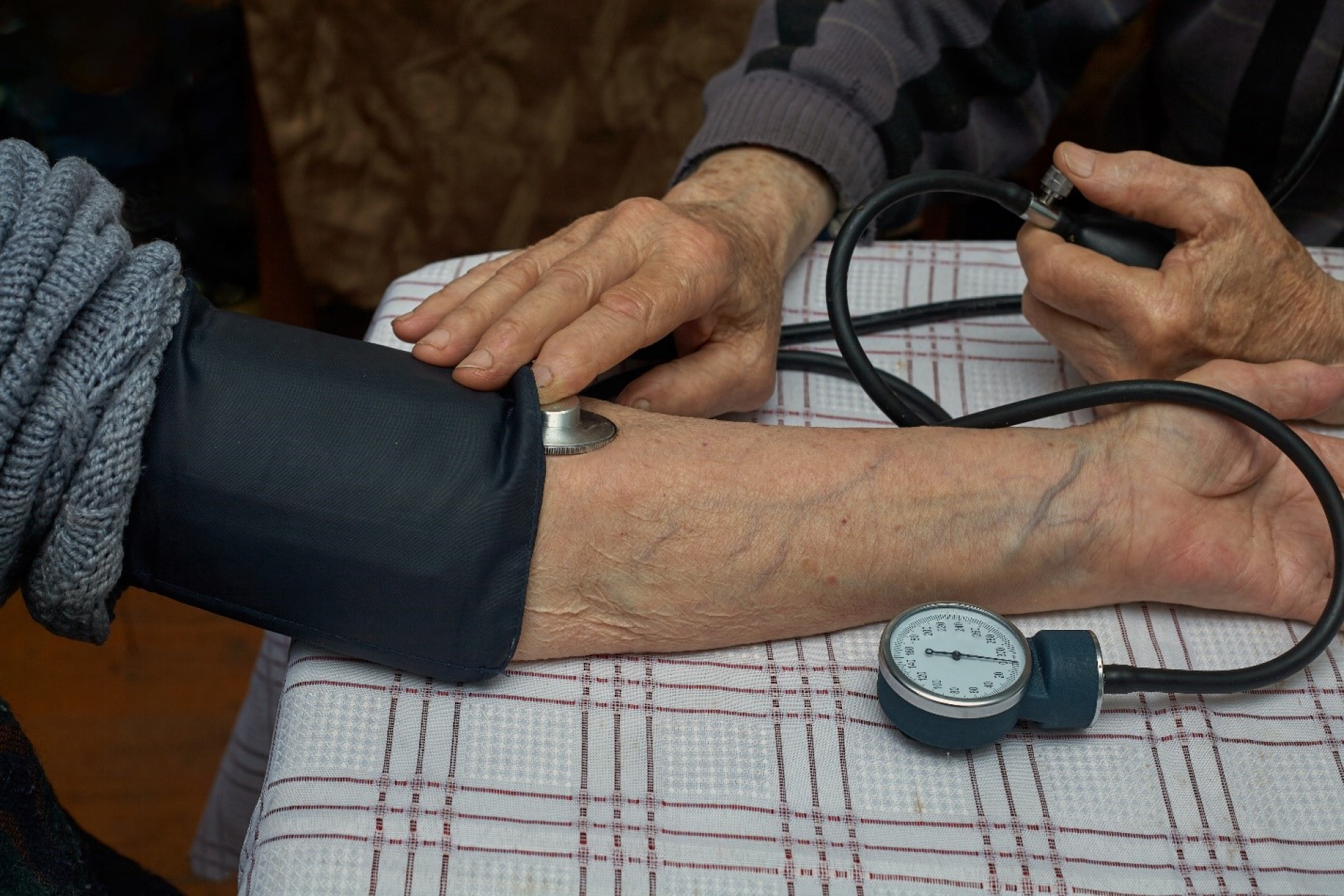High blood pressure, also known as hypertension, is a medical condition that affects the arteries. It occurs when the heart pumps blood through arteries, exerting pressure on the artery walls, resulting in elevated blood pressure. Over time, this condition can damage arteries and lead to severe complications such as heart attacks and strokes. Hypertension is a significant health concern in adults due to its high prevalence and association with major risk factors including cardiovascular, brain, and kidney diseases.
Blood Pressure and Hypertension:
Blood pressure is measured by two numbers: systolic and diastolic. Normal blood pressure levels are typically 120/80 mmHg (millimeters of mercury).
Systolic Blood Pressure: This measures the pressure in the arteries when the heart beats.
Diastolic Blood Pressure: This measures the pressure in the arteries when the heart rests between beats.
Normal blood pressure levels are below 120/80 mmHg, while readings higher than 180/120 mmHg are considered a hypertensive emergency. Regular blood pressure monitoring is crucial to detect and manage hypertension effectively.
Types of Hypertension:
Hypertension is primarily categorized into two types:
Primary Hypertension: Also known as essential hypertension, this is the most common type and often develops due to age, genetic factors, and lifestyle choices such as alcohol consumption, smoking, and lack of exercise.
Secondary Hypertension: This type results from underlying medical conditions such as renal artery stenosis, thyroid disorders, and obstructive sleep apnea, as well as certain medications.
Symptoms of hypertension
People with high blood pressure can experience the following symptoms:
- Severe headaches
- Dizziness
- Nausea
- Vomiting
- Chest pain
- Anxiety
- Confusion
- Shortness of breath
- Blurred vision
- Abnormal heartbeat
Causes of Increasing Cases of Hypertension in Adults:
The rising prevalence of hypertension in adults can be attributed to various factors including:
Lifestyle changes
- Physical Activity: Leading a sedentary lifestyle with no physical exercise, or sitting for a long time can significantly raise hypertension.
- Diet: Unhealthy diets such as more salt intake, smoking, excessive alcohol consumption, and poor diet.
- Obesity: Obesity is a major risk factor. High Cholesterol levels may increase due to obesity and can lead to hormonal changes which may affect blood pressure.
Health conditions
- Heart attack and heart disease: Hypertension blocks your arteries which can reduce the flow of blood and oxygen to the heart and cause heart problems. When the blood supply to the heart is blocked, it causes heart attack; and when the heart cannot pump enough blood and oxygen to organs it may lead to heart failure.
- Kidney diseases: People with kidney disease are more likely to have hypertension. The blood vessels in the kidney become narrow or weak which can lead to kidney damage.
- Stroke and brain problems: Stroke may be linked to the development of hypertension. Arteries that supply blood and oxygen to the brain may get blocked and cause stroke.
Age-related changes
As people age the vascular system changes and makes the arteries stiffer causing high blood pressure. Also, other age-related health issues may cause hypertension.
Medication use
The use of some medications can raise or lower hypertension such as:
- Pain medications: Few painkillers make the body retain water, and excessive amounts of water in the body cause hypertension and kidney problems.
- Antidepressants: They function by changing how the body reacts to mood-regulating brain chemicals., therefore these chemicals may raise blood pressure.
- Immunosuppressants: These are taken by organ transplant recipients. Those who had organ transplants take immunosuppressants. These help in preventing the body from rejecting new organs.
- Decongestants: These make blood vessels smaller and harder for blood to flow, which can raise blood pressure.
Social factors
- Socioeconomic factors: Lack of access to the treatment and diagnosis the diseases due to income disparities can affect the overall well-being of individuals.
- Stress: Chronic stress may lead to elevated blood pressure levels.
Diagnostic Tests for Hypertension:
Blood pressure measurement is a standard component of routine health checkups, providing vital information about blood pressure levels. It is typically measured in millimeters of mercury (mmHg), with the systolic and diastolic readings indicating arterial pressure during heartbeats and rest intervals, respectively.
Interpretation of the Test Results
|
Category |
Systolic mmHg (Upper number) |
And/or |
Diastolic mmHg (lower number) |
|
Normal |
Less than 120 |
and |
Less than 80 |
|
Elevated |
120-129 |
and |
Less than 80 |
|
High blood pressure stage 1 |
130-139 |
or |
80-89 |
|
High blood pressure stage 2 |
140 or higher |
or |
90 or higher |
|
Hypertensive crisis |
Higher than 180 |
and/or |
Higher than 120 |
Treatment and prevention for hypertension
Medications such as ACE inhibitors and angiotensin-2 receptor blockers, relax blood vessels and prevent kidney damage. Calcium channel blockers relax blood vessels. Diuretics like chlorthalidone eliminate extra water from the body, lowering blood pressure. Preventive measures of hypertension include healthy lifestyle changes such as
- Limiting the intake of salt in the daily routine
- Eating a low-fat, balanced diet such as fruits and vegetables
- Being physically active includes running, walking
- Doing strength-building exercises
- Quitting smoking
- Limit the intake of alcohol
- Managing stress
In conclusion, the increasing prevalence of hypertension in adults can be attributed to various factors including lifestyle changes, underlying health conditions, medication use, and age-related factors. Maintaining a healthy lifestyle and regular health checkups are crucial for controlling hypertension and preventing its complications.


